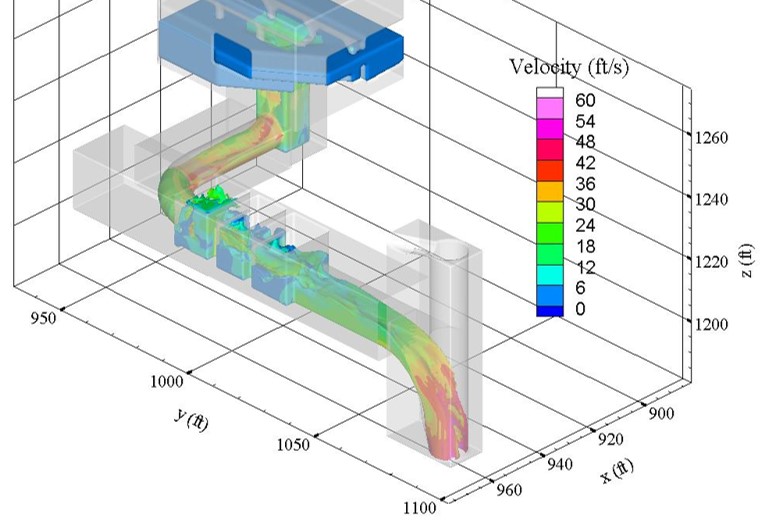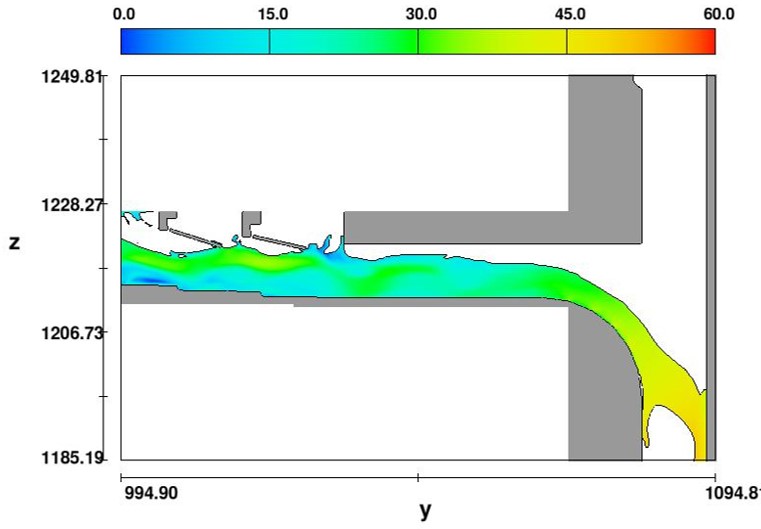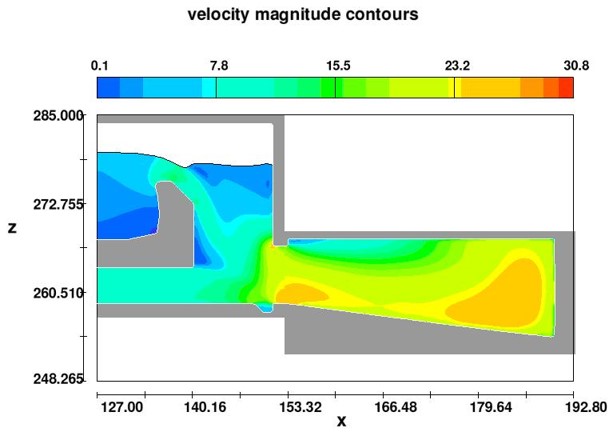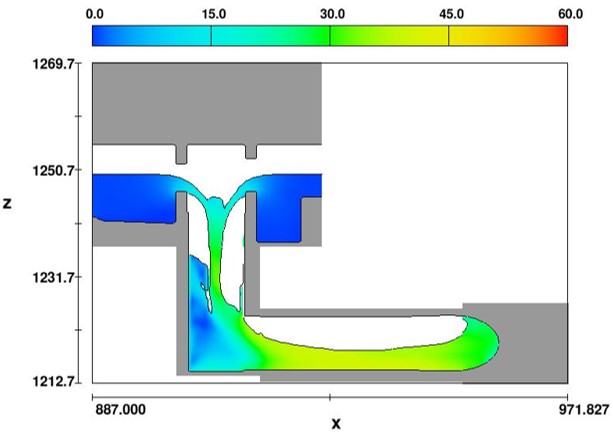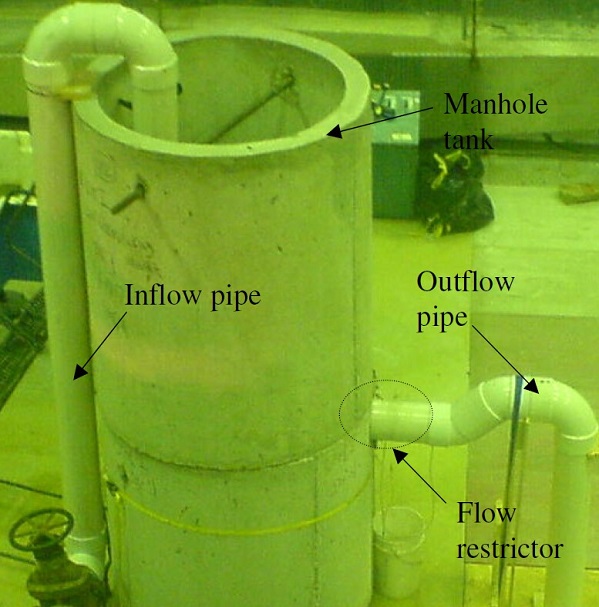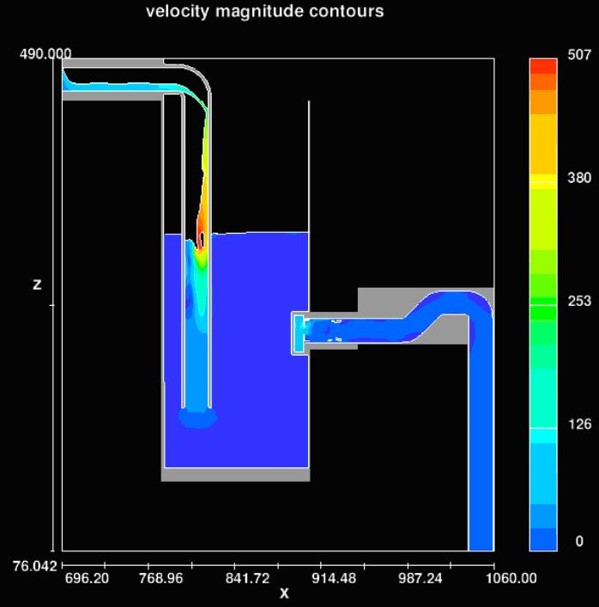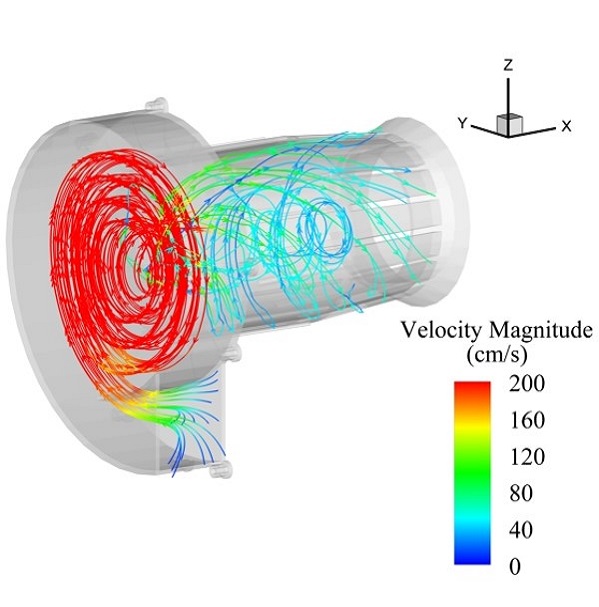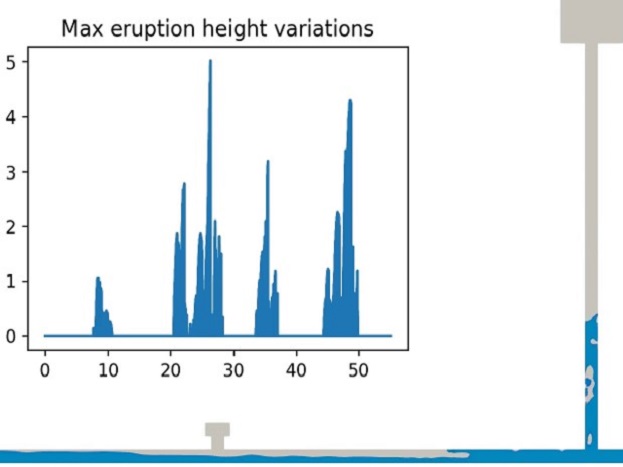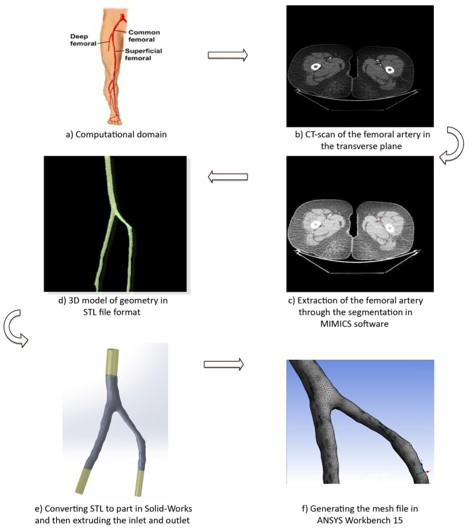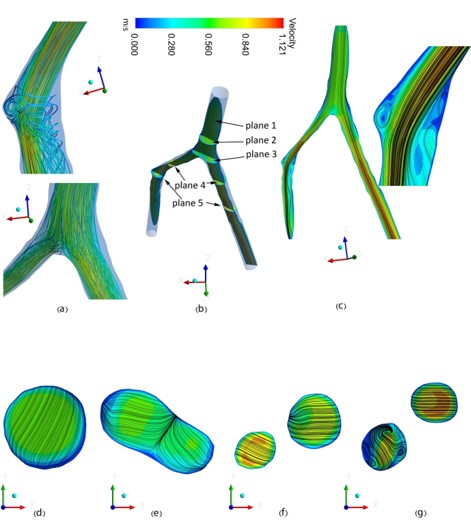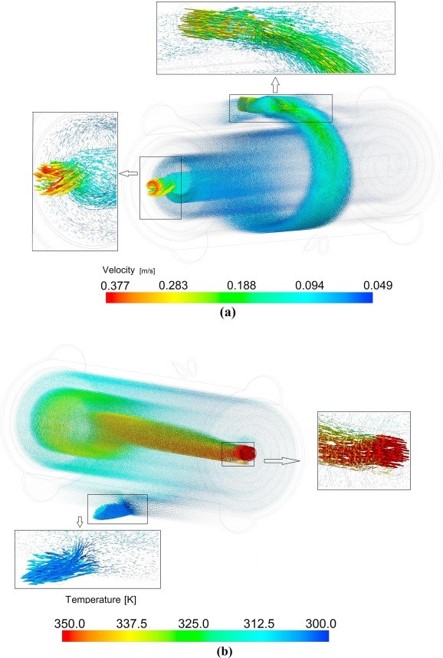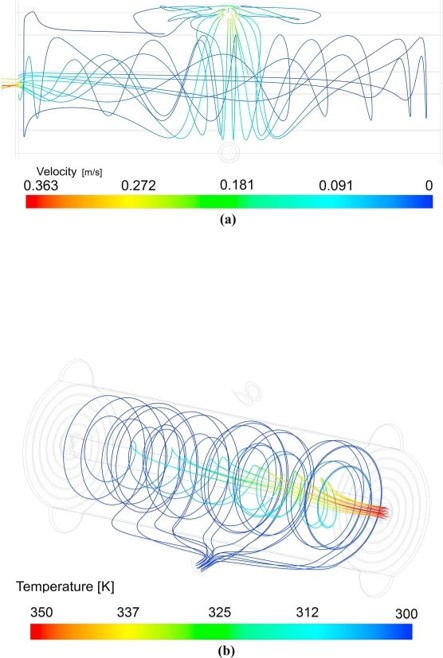Computational Fluid Dynamics (CFD)
The team applies advanced Computational Fluid Dynamics (CFD) modeling to a wide range of hydraulic and environmental systems. Their work includes simulations of fish passage structures, dams, flood gates, pumping stations, canoe chutes, turbines, energy dissipators, multiphase flows, urban heat island effects, storm surge, hurricanes, and fluid–vegetation interactions. The images below showcase examples of their work in this area.
A 3-D Numerical Simulation of non-Newtonian Blood Flow through Femoral Artery Bifurcation with a Moderate Arteriosclerosis: Investigating Newtonian/non-Newtonian flow and its Effects on Elastic Vessel Walls. Left: Steps taken for preparation of 3D model from CT-Scan images; Right: 2D and 3D contours and streamlines at the time of maximum flow (a) 3D streamlines, (b) surface locations, (c) contour and streamlines of plane 1, (d) plane 2, (e) plane 3, (f) plane 4, (g) plane 5
Effect of employing a new biological nanofluid containing functionalized graphene nanoplatelets on thermal and hydraulic characteristics of a spiral heat exchanger. Left: Velocity vectors: (a) cold water, (b) hot fluid. Right: Pathlines for ϕ = 0.1%: (a) cold water side at Re = 3000, (b) nanofluid side at Re = 500.
COPYRIGHT, HydroOptima Solutions
